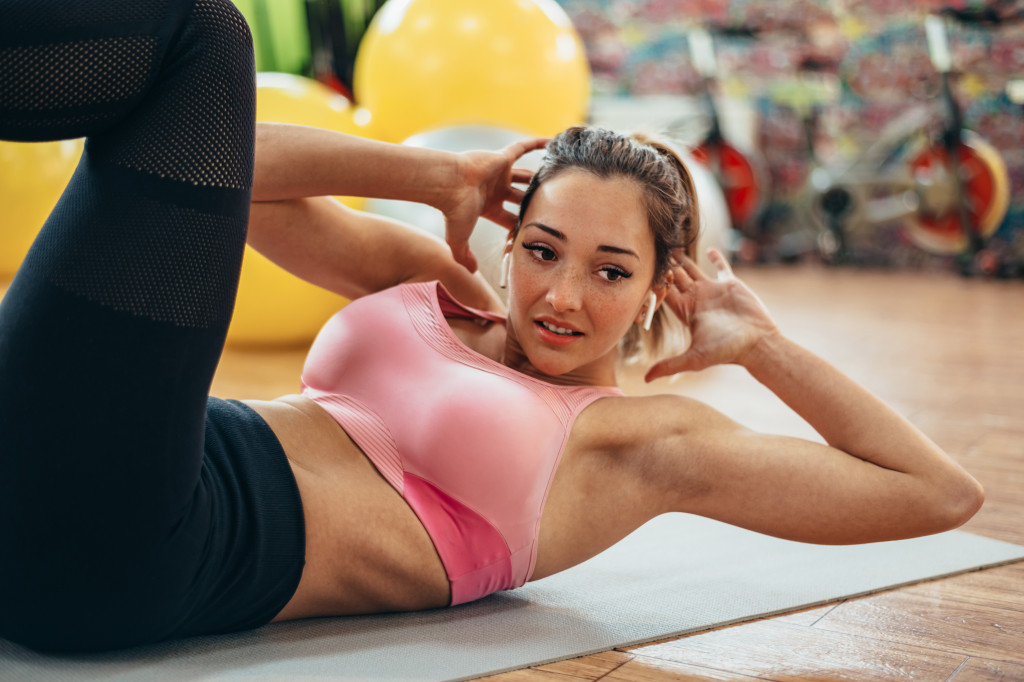- Lack of time is a common factor that can prevent an active lifestyle.
- Sitting for prolonged periods can increase the risk of heart disease and obesity.
- Finding an activity enjoyable is necessary to stay motivated and keep on track with fitness goals.
- Adapting exercises to fit specific needs is possible for those with physical limitations.
- Improving vision requires regular eye exams, wearing proper glasses/contacts, eating a healthy diet, and taking regular breaks from screens.
Living an active lifestyle is crucial for maintaining good health and overall well-being. However, sometimes you find yourself struggling to get moving and stay active. Several factors can hold you back from leading a more active lifestyle. This guide will explore five common factors holding you back and provide tips for overcoming them.
1. Lack of Time
One of the most common reasons people give for not able to lead an active lifestyle is a lack of time. Balancing work, family, and other responsibilities can be challenging, leaving little room for exercise or physical activity. However, it’s important to prioritize your health and make time for physical activity. You don’t necessarily need to spend hours at the gym each day to see the benefits of exercise. Instead, try incorporating short bursts of physical activity throughout your day, such as taking a brisk walk during your lunch break or doing a few quick exercises during commercial breaks while watching TV.
2. Sedentary Lifestyle
Another common factor that can hold you back from a more active lifestyle is a sedentary lifestyle. Many jobs require sitting at a desk for hours on end, and it can be challenging to find the motivation to get up and move when you’re tired or feeling stressed. However, sitting for prolonged periods can negatively affect your health, such as an increased risk of heart disease and obesity. Try incorporating more movement into your daily routine to combat a sedentary lifestyle. This could be as simple as taking a five-minute break every hour to stretch or walk around your office.
3. Lack of Motivation

Sometimes, finding the motivation to stay active cannot be easy. This could be due to a lack of interest in exercise, feeling too tired or stressed, or not knowing where to start. If you’re struggling with motivation, try setting realistic goals and finding an enjoyable activity. This could be anything from joining a dance class to hiking in nature. Additionally, take advantage of the power of accountability and seek a partner to keep you stimulated and on target with your fitness pursuits.
4. Physical Limitations
Physical limitations can also hold you back from a more active lifestyle. This could be due to a chronic health condition, injury, or disability. However, it’s important to remember that physical activity can still benefit individuals with limitations, and there are often ways to adapt exercises to fit your specific needs. Consult with your healthcare provider or a fitness professional to determine what activities are safe and appropriate.
5. Poor Vision
Poor vision can also hold you back from leading an active lifestyle. It can be challenging to participate in physical activities when you can’t see well, whether due to nearsightedness, farsightedness, or other vision problems. However, there are several solutions to improve your vision.
Here are some tips for improving your vision:
Get Regular Eye Exams
Regular eye exams are vital to maintaining good vision. An optometrist can comprehensively examine your eyes, including testing for glaucoma, cataracts, and other vision problems. It’s important to take an exam at least once every two years, even if you don’t think anything is wrong with your vision. This will help catch potential issues early on and allow for proper treatment before the condition worsens.
Wear Properly Fitted Glasses or Contacts
If you need vision correction, glasses or contact lenses are the most common solutions. Getting properly fitted glasses or contacts is important to ensure that your eyesight is improved as much as possible. Investing in high-quality ortho-k contact lenses can also be a great option for those who don’t want to wear regular contacts or glasses all day. These lenses are worn overnight and provide clearer vision throughout the day. Ortho-k contact lenses can also help reduce your risk of developing more serious eye conditions.
Improve Your Diet

Eating a healthy diet with plenty of fruits, vegetables, and other nutrient-rich foods is one of the simplest ways to improve your vision. Foods high in antioxidants may protect against age-related eye diseases such as macular degeneration or cataracts. Vitamin A deficiency has also been linked to poor night vision, so it’s important to ensure you are getting enough Vitamin A in your diet.
Rest Your Eyes Regularly
Regular breaks from screens and bright lights can help reduce eye strain and fatigue. Take a break from screens every 15-20 minutes and get 8 hours of sleep each night for optimal vision health.
Wear Sunglasses
Sunglasses are an easy way to protect your eyes from the sun’s harmful UV rays, which can lead to cataracts or other long-term damage. Look for sunglasses that block out 99% or more of UVA and UVB radiation and lenses that offer 100% protection against glare. Wearing a wide-brimmed hat can also provide additional protection while outdoors.
In Summary
Several factors can hold you back from leading a more active lifestyle. However, with some planning and effort, overcoming these obstacles and enjoying the many benefits of physical activity is possible. Whether it’s finding ways to incorporate movement into your daily routine or seeking professional guidance to adapt exercises to fit your specific needs, there are solutions to help you lead a more active and fulfilling life.



